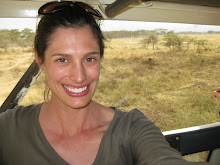The hub of culinary innovation and diversity Kakamega is not. Food options are pretty straight-forward and it seems to me that every meal is composed of a starch, a protein (if you can afford it), and some shredded greens.
The starch options are: white rice, fries, ugali (a stiff porridge made from corn flour) or chipati (like naan).
For protein you’ve got chopped beef, chopped liver, oxtail, chicken, kidney beans, lentils or fish, including the head. Oh, and goat and lamb!
About the only "side dish" I've seen is stewed cabbage and carrot.

And that’s it! I have yet to encounter a meal which disproves this theory.
Except for the predictability of it all, I’ve been very happy with the food, because there’s nothing I like better than beef stew, rice and naan. The fish, liver and tough chicken have taken more adjustment, but can also be good. I’ve also gotten used to the ugali, which reminds me of Cream of Rice, a.k.a. “mush” we would have for breakfast growing up. It’s served in a giant mound the width of a small pizza pan and four or five inches high, then cut into slices. You take a hunk/slice, then break off pieces of with your fingers, roll the piece into a little ball, make a divot in the middle of the ball with your thumb, then load it up with meat, soup (meat juice) or greens. It’s the same idea as Indian naan or chipati—it acts as a scooper.
Fortunately for me, the beef stew is really good at our house. My host mom makes it with tomatoes, onions, garlic, maybe some green pepper, curry powder and some packaged spice mix which no doubt contains MSG.
When we had fish, also stewed with the above-mentioned ingredients, she asked if I wanted the head. Ehhhhhrrrr... Apparently if you serve fish to a Luo (Obama’s dad’s tribe) without the head, he or she will refuse to eat it. “How do I know it’s fish?” Mama Susan says they’ll ask. How indeed.
When we had chicken, the whole thing save the feet and head, went in the pot (I’m sure you didn’t see that one coming). I stuck to eating the drumsticks and avoided the neck and carcass--I couldn't tell where the breasts were. I remember reading somewhere that because Americans eat so many chicken breasts, the dark meat is often frozen and sold to Eastern Europe and the feet go to China. Imagine different parts of the same chicken being consumed tens of thousands of miles away from each other.
Besides breakfast, I eat about 1/3 of my meals with my hands. Anytime you have ugali, you won't see silverware. To facilitate all of this, there are sinks to wash your hands before eating in restaurants and dining rooms. If you don’t have running water, you take turns pouring a pitcher of water over each other’s hands over a plastic basin.
Dessert is a slice of mango, pineapple or watermelon, all of which are the best I’ve had anywhere. There are oranges too, but they're nothing special. I didn’t like mango before I came to Kenya, and now I have it every chance I get.

(Fruit salad at the Golf Hotel, the fanciest place in town.)
In general, the fruits and vegetables here are smaller than back home – 1/3 to ½ the size we’re used to, but have about twice the flavor. I may have to start buying organic and seasonally when I get home, after being spoiled by the produce here…
Yours,
Katy
Update: I wrote this on Feb. 18th and it is now the 25th, and currently I am tired of the monotony of the food and want a sandwich in the worst way. With lettuce. Which I've not seen once in Kakamega.

